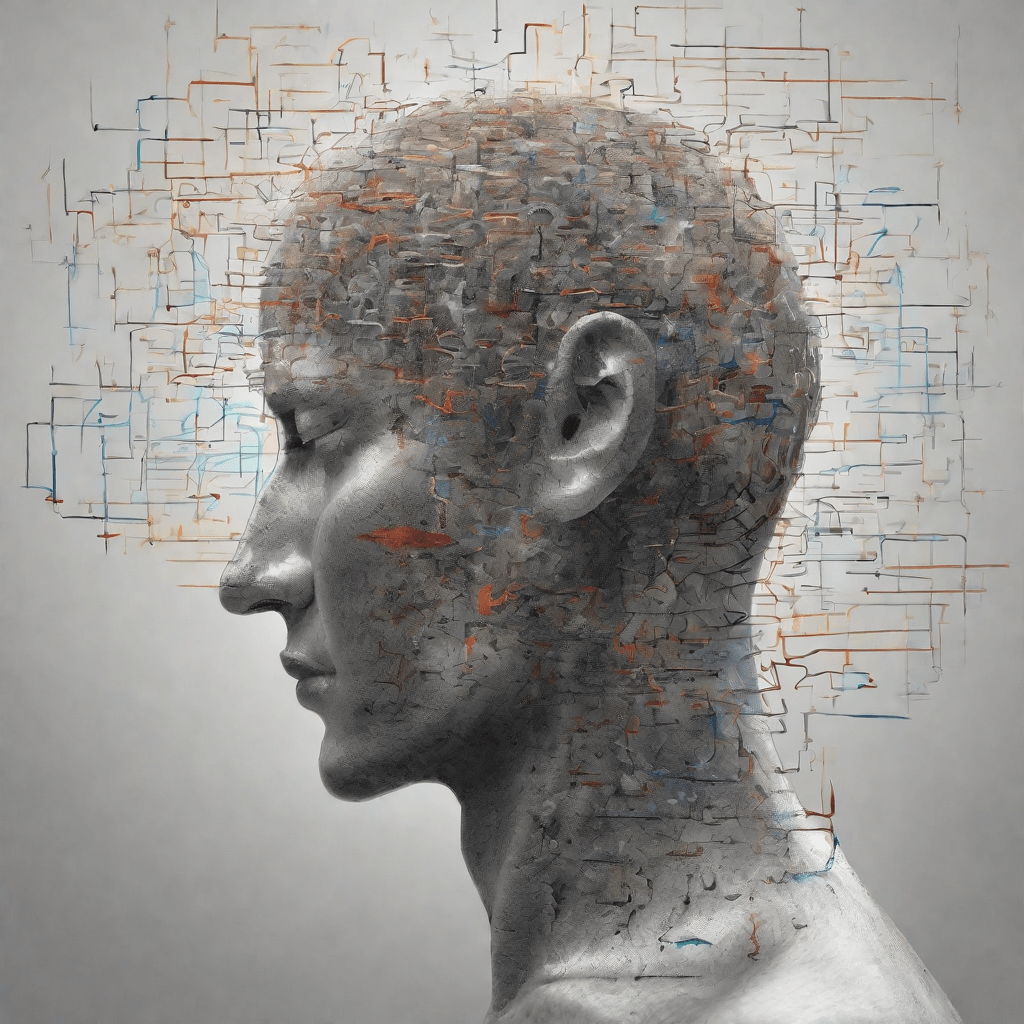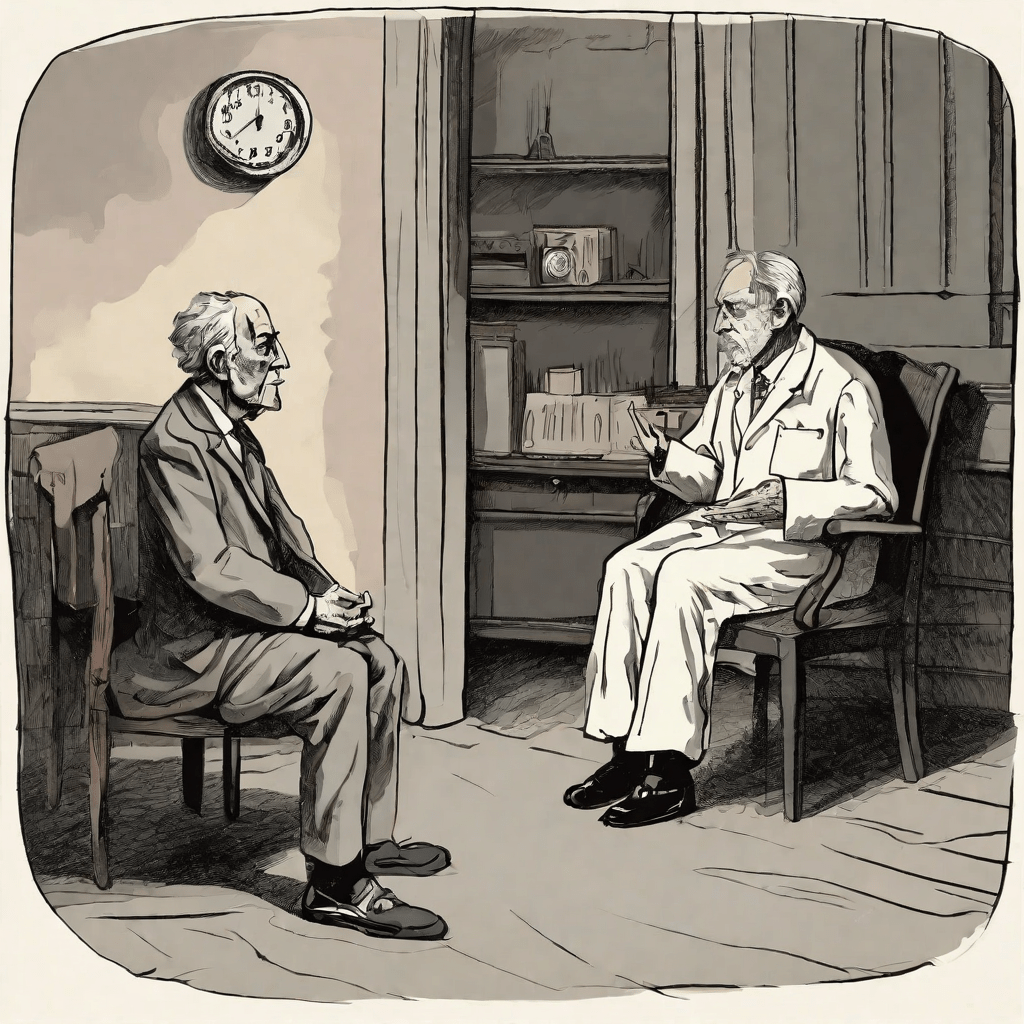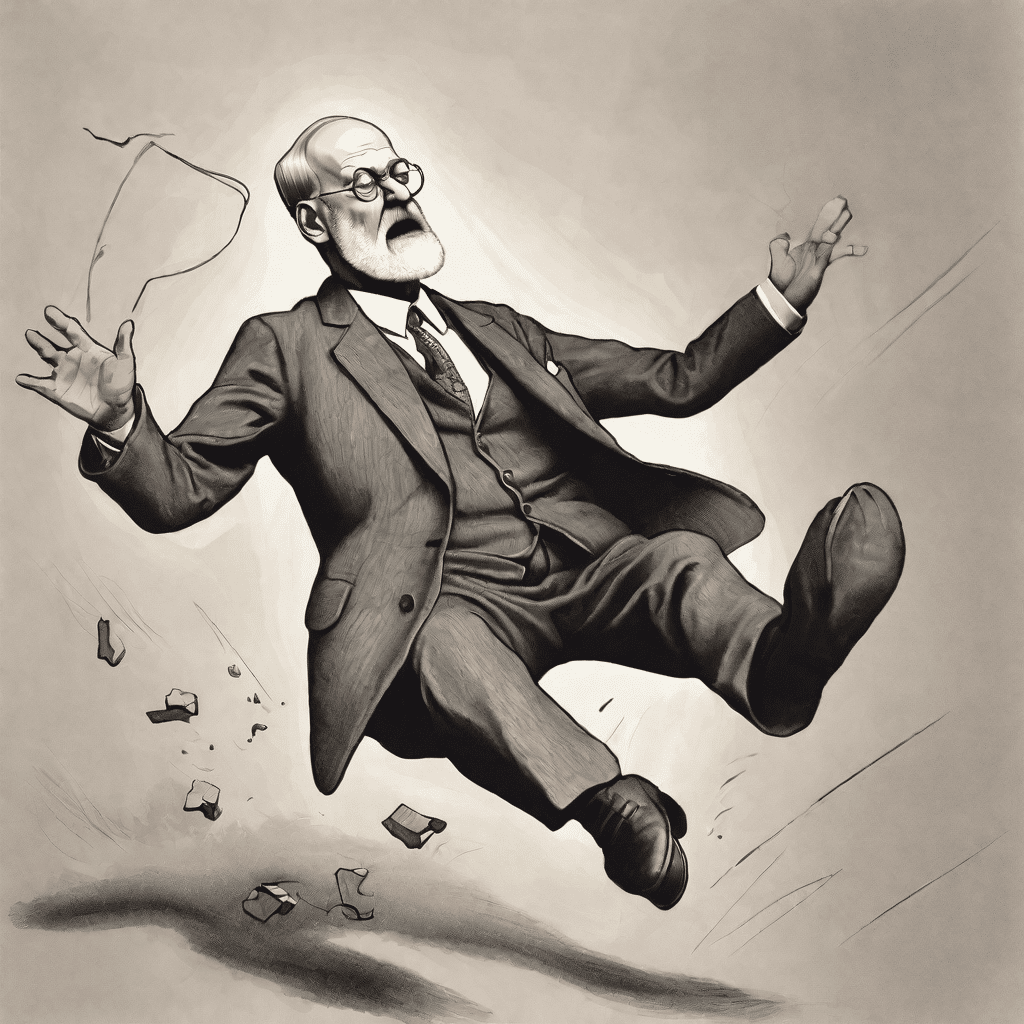What is the Freudian Slip Meaning?
Delving into the intricate world of psychoanalysis, one can’t miss the profound contributions of Sigmund Freud, a maestro in the field.
His theories and concepts have brought a great wave of understanding about the human mind’s complex network.
One such concept is the ‘Freudian slip’. What is the Freudian Slip Meaning. Hinged on the premises of Freud’s psychoanalytic theory, a Freudian Slip presents as an intriguing idiom in common parlance.
In the vast expanse of Freud’s psychoanalytical theory, the human mind is compartmentalized into three entities — the id, the ego, and the super-ego, each playing a definitive role in shaping an individual’s psyche and behavior.
The id pertains to innate, instinctual desires, the ego mediates between the id and reality, and the super-ego regulates the moral compass.
The interactions, clashes, and power dynamics of these three categories forge the basis of human behavior, emotions, and slip-ups, as postulated by Freud.
A Freudian slip, also known as parapraxis, surfaces when our unconscious thoughts sneak out in our speech or actions, unbeknownst to our conscious self.
It could be an inadvertent error, a misstatement, or a ‘slip’ during a conversation that might reveal what’s brewing inside the depths of the unconscious mind.
Also, an individual’s actions under the sway of a Freudian slip are often incongruent with their conscious will and intention, making this theory all the more fascinating.
A deep dive into Freudian slips often stirs curiosity about various aspects.
Is it a simple verbal mistake or does it usher us into the labyrinth of suppressed emotions and hidden desires?
Is it an unintentional disclosure or a subconscious leakage, revealing much more about the psyche than meets the eye?
The understanding and interpretation of the Freudian slip provide intriguing insights into the mysteries of the human mind.
For more detailed comprehension of this phenomena, a comprehensive guide to Freudian Slip Meaning could provide a more nuanced understanding of psychoanalysis and Freud’s theories.
Definition of Freudian Slip
Basic Explanation of the Term
The term Freudian Slip arouses a considerable curiosity given its roots in the profound domain of psychoanalysis, propounded by Sigmund Freud.
The Freudian Slip Definition is centered around the idea of an unintentional error, generally verbal or memory-related, that slyly exposes hidden or suppressed thoughts and desires.
These slips can range from common speech mistakes to more significant subconscious disclosures. It’s a psychological slip type that reveals more about our innermost stratum than we consciously intend to.
A Freudian slip, or Freud’s Parapraxis Interpretation, can be considered as a window to the tumult and tensions brewing in the id, the primal center of desires in Freud’s psychoanalytical theory.
The slip can often be humorous, intriguing, or even revealing, depending on the context and nature of the inadvertent blunder.
Examples of Freudian Slips
Freudian slips color myriad elements of our daily life, be it general conversation, public speaking, or even in literature and media.
A misplaced word in a sentence, a name mistakenly taken, an unintended innuendo – are all ripe grounds for an everyday Freudian Misstatement Understanding.
In public speaking, these slips can sometimes be highly illuminating, revealing subconscious thoughts of the speaker or may simply reflect a mental Freudian blunder.
Literature and media, with their dramatic flair, present a playground for these psychoanalytic slips leading to intriguing plot points or key character insights.
Take the example of forgetting a spouse’s birthday or unwittingly referring to our boss as ‘mom’ or ‘dad’.
Such slips are spontaneously amusing but also ignite a spark questioning – ‘Was it truly spontaneous or a subconscious thought bursting out in the open?’
Elaboration on its Psychological Implications
The importance of Freudian slips goes beyond its catchy name and amusing examples, reaching into the rich world of psychoanalysis.
The Unconscious Slip Significance anchors itself to the concept that the human mind, a spectrum ranging between conscious to unconscious, houses thoughts, desires, and experiences, many of which lie beneath the surface.
While we’d like to believe that we have full control over our thoughts and actions, a Freudian slip brings an Unintentional disclosure Meaning to the scene.
It serves as a possible exposure of hidden thoughts that have been repressed or ignored.
Infused with the essence of Freud’s psychoanalysis, a Freudian slip might just be a tip of an iceberg in the sea of subconscious and unconscious layers – a concept that remains one of the most intriguing mysteries of human psychology.
Psychoanalytically speaking, a Freudian error might underline some unresolved conflicts, suppressed desires, or unacknowledged emotions, demanding our attention.
In Freudian theory, this subconscious leakage, or oops moment, has immense potential to offer a deeper understanding of our psyche.
Psychology Behind Freudian Slip
Role of Unconscious Mind

The concept of an unconscious mind is pivotal in understanding the Freudian Slip by diving deep into Sigmund Freud’s Theory.
Freud postulated that the unconscious mind, a repository of suppressed desires and experiences, has a significant influence on our behavior, influencing our thoughts and actions in ways we might not consciously comprehend.
Freud considered slips of the tongue, or Verbal Mistake Exposition as communications from our unconscious mind, often revealing what has been pushed into the abyss of our psyche.
The idea that our unconscious mind can influence our speech and actions without our conscious consent is central to the Freudian Slip Definition.
Psychological Conflicts and Freudian Slips
The plot thickens when we delve into the arena of psychological conflicts and their connection to Freudian slips.
These unconscious slips can hint at unresolved conflicts or issues, giving us glimpses into the undercurrents of individuals’ subconscious minds.
The Connection between Desires, Anxiety, and Slips alludes to the iceberg theory of human personalities presided over by the id, ego, and super-ego.
Buried desires, or fears, can manifest through a Freudian slip, indicating the unrest simmering beneath the composed surface.
Further, our defense mechanisms can also lead to Freudian mistakes, as people may unconsciously do the opposite of their intended actions.
Thus the intricate dance between individual subconscious thoughts, emotions, and Freudian Misstatement Understanding presents a fascinating overview of human psychology.
These ‘slips’ can be seen as the tongue revealing what the mind conceals, acting as keys to unlock deeper insights into our psyche.
Accuracy and Criticism of the Concept
The accuracy of Freud’s theory and practicality of the Freudian slip concept in modern psychology calls for an analytical discussion.
While some psychologists affirm the Unconscious Slip Significance, others critique Freud’s theory for its lack of empirical evidence and subjective interpretation.
Though the Freudian slip phenomenon isn’t universally accepted, it continues to intrigue psychologists and enthusiasts alike due to its potential on insight into the hidden depths of the human mind.
Observing and deciphering patterns in apparent speech or memory ‘slips’ is known to have supported therapeutic conversations in psychoanalysis.
Modern psychology recognizes the complexities of the human mind’s workings, and while Freud’s theory and its Freudian slip might not wholly explain them, they certainly contribute to our understanding.
Paradoxically, the Freudian slip’s inherent ambiguity—its blend of the humorous, the everyday, and the deeply insightful—may be the same factor that contributes to its lasting fascination.
Application and Interpretation of Freudian Slips

In Therapeutic Context
In the realm of therapy, Freudian slips can play an insightful role, particularly in psychoanalysis sessions.
Clinicians well acquainted with the Sigmund Freud theory take these slips as important cues to understanding their patients’ subconscious thoughts.
A Psychoanalytic Freudian Slip could inadvertently provide a glimpse of the patient’s repressed emotions and unresolved conflicts.
These verbal or mnemonic ‘errors’ can be decoded to access submerged thoughts that patients might have difficulty surfacing or vocalizing deliberately.
Providing valuable insights into the clients’ mental states, Freudian slips can remarkably aid the healing process.
By unveiling hidden anxieties, suppressed desires, or past traumas, therapists can guide patients toward better self-understanding and psychological well-being.
Analysis in Everyday Life
Looking beyond the therapeutic setting, Freudian slips can also unravel facets of our psyche in day-to-day life.
A slip in conversation could be interpreted as a Revealing Subconscious Thought, triggering introspection or affirming certain subliminal suspicions about our prevailing mental states.
Conducting a self-analysis from these slips might offer valuable insight into our suppressed emotions, unresolved dilemmas, or deep-seated fears.
On the societal level, they hint at the prevailing societal norms, unspoken anxieties, and collective repression that shape our speech and actions.
However, it’s also critical to realize that not every Freudian slip necessarily carries profound subconscious meaning. As William H. Whitson commented, “Sometimes a cigar is just a cigar”.
The Larger Impact of Freudian Slips
The broader interpretation of a Freudian slip goes beyond individual psychology to prominent implications for understanding human error and the role of the unconscious mind in our actions.
Considered a form of a Mental Freudian Blunder, the slips broaden our understanding of human error, pushing us to acknowledge the influence of unconscious drives in our seemingly normalized actions.
This Freudian Error Explanation may provide perspective on certain inexplicable ‘slips’ in high-stake scenarios such as aviation, healthcare, or other human-operated systems, contributing to an expanded understanding of ‘human errors’.
Furthermore, Freudian slips have significantly influenced our cultural and linguistic paradigms.
They have spiced up our conversations, colored our literature, and even stimulated analyses of political discourse.
Moreover, the concept has effortlessly slipped into common parlance, signifying its impactful connection to our shared human experience.
Wrapping Up the Dive into the World of Freudian Slips
Drawing upon Freud’s fascinating psychoanalytic theory, we’ve explored the Freudian slip meaning – a seemingly innocent linguistic or mnemonic mistake that can potentially blow the cover of repressed desires or dormant anxieties lying within our unconscious mind.
Embarking upon this intricate exploration, we’ve revisited Sigmund Freud’s theory and the intriguing idea of unintentional disclosures being potential gateways to understanding our hidden mental landscapes.
We confronted the unconscious mind’s role and the palpable dance of psychological conflicts ensuing in the Freudian slip’s realm.
The exploration underscored the profound implications of these slips, playfully straddling the amusing and deeply insightful, in the therapeutic context and our everyday lives.
In a therapeutic setting, the Freudian slip provides a novel avenue for clinicians to decipher their patient’s repressed emotions or unresolved conflicts.
In the quotidian scenes, it evokes curiosity and introspection, presenting an opportunity for self-analysis or a greater understanding of our surrounding ethos.
This enigma neatly folded within our everyday communication has far-reaching impacts on understanding human error and influencing our cultural and linguistic narratives.
While Freud’s theory and Freudian slips specifically aren’t without critics, they have undeniably added rich dimensions to our comprehension of human psychology.
Nonetheless, individual interpretation should be balanced with a grain of salt, considering that attributing profound meaning to every slip could risk overinterpretation.
The Freudian slip meaning, regardless of how one discerns it, continues to spark intellectual curiosity and provides food for thought for individuals traversing the labyrinth of human psychology.
Prospective research on the topic can explore its more nuanced aspects, decipher patterns, and evaluate its applicability in various domains of life and work. Scrutinizing this intriguing psychological phenomenon through various lenses – therapeutic, personal, societal – could unlock new perspectives and pave the way for a richer understanding of our shared human experience.


